Making Progress
USC Earns Gold Rating from the
Sustainability Tracking, Assessment & Rating System (STARS)
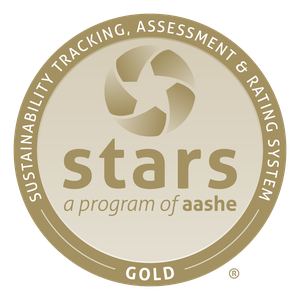
In February 2024, USC earned a prestigious STARS Gold rating from AASHE, the Association for Advancement of Sustainability in Higher Education.
The Sustainability Tracking, Assessment & Rating System™ (STARS) is a transparent, self-reporting framework for universities to measure their sustainability performance. The assessment encompasses a multitude of sustainability data points from across USC. It helps to build a stronger campus sustainability community, creates incentives for improvement, and facilitates information sharing about higher education sustainability practices and performance.
This achievement comes a year earlier than our Assignment: Earth goal, yet another sign of USC’s rapid transformation towards sustainability leadership.
For more information on STARS and AASHE, visit AASHE.org.
Key Reports & Data
Assignment: Earth FY23 Annual Report
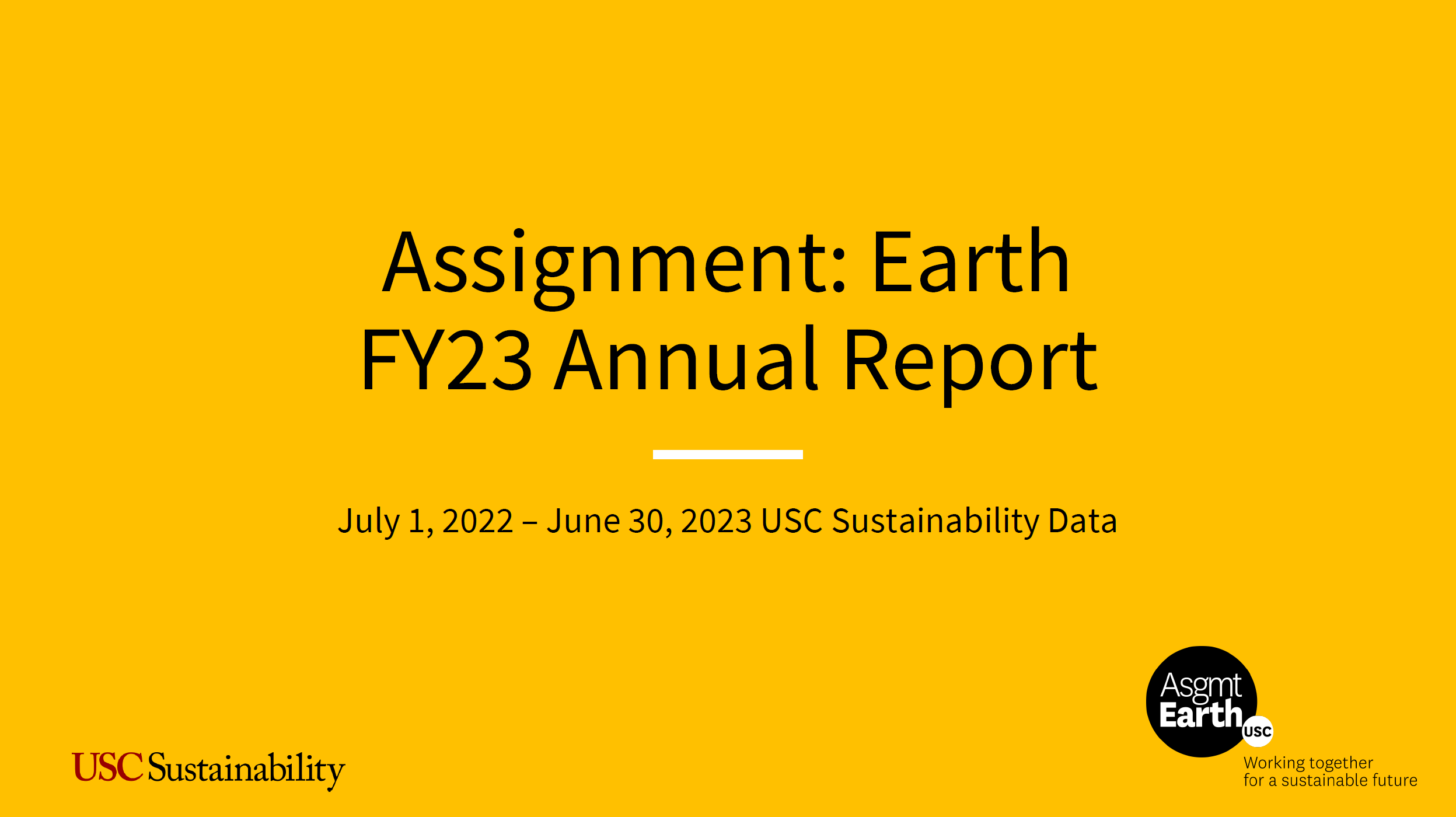
USC’s Sustainability, Literacy, Behavior and Cultural Survey
First administered in April 2022, this survey helps to inform sustainability engagement and education programs at USC and to establish a baseline for measuring progress towards Assignment: Earth engagement goals.
USC Sustainability By the Numbers
View the Assignment: Earth FY23 Annual Report for more.

Energy and Emissions
- 43.4% absolute GHG scope 1 + 2 emissions reduction since 2014 baseline
- 42,000 kWh energy savings per month resulting from centrally-managed Heating, Ventilation, Air Conditioning, and Cooling (HVAC) automated scheduling programs
- 6 academic buildings were upgraded to energy-efficient LED
- 60% lighting load reduction after LED upgrades
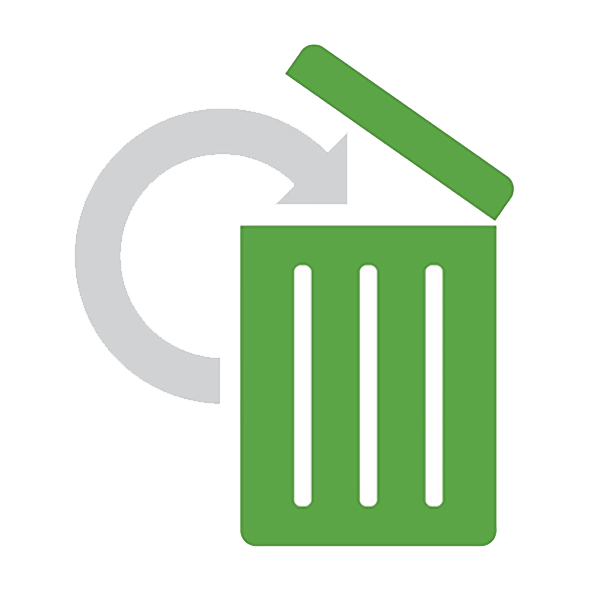
Waste Diversion
- 54.44% USC’s overall waste diversion rate (as of December 2023)
- 60.10% University Park Campus waste diversion rate (as of December 2023)
- 45.14% Health Sciences Campus waste diversion rate (as of December 2023)
- 65.34% USC Village waste diversion rate (as of December 2023)
- 39.61% USC Housing (off campus) waste diversion rate (as of December 2023)
- 18.42% CAL/CDF buildings (off campus) waste diversion rate (as of December 2023)
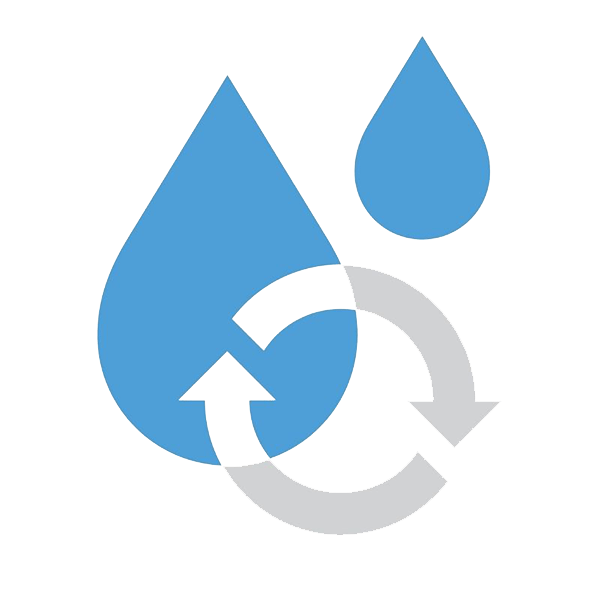
Water Conservation
- 21% potable water use reduction per sq ft.of bldg. space since 2014 baseline
- 40% estimated average water use savings at each planting plot resulting from new native or climate adaptive landscaping
- 90% of UPC irrigation is centrally controlled and employs weather-based sensors
- 13 water meters were added to campus cooling towers. 79% of UPC buildings are sub-metered for water
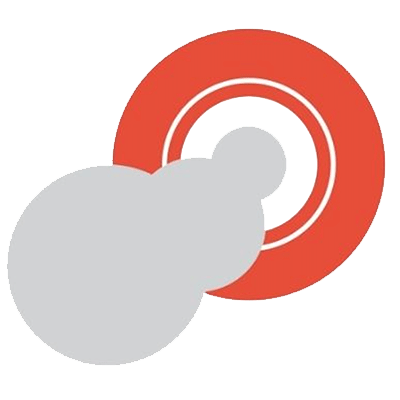
Transportation
- 11% reduction in single-occupancy vehicles commuting to campus since FY14
- 24 bio-fuel buses in operation
- 246 EV charging ports across all USC campuses
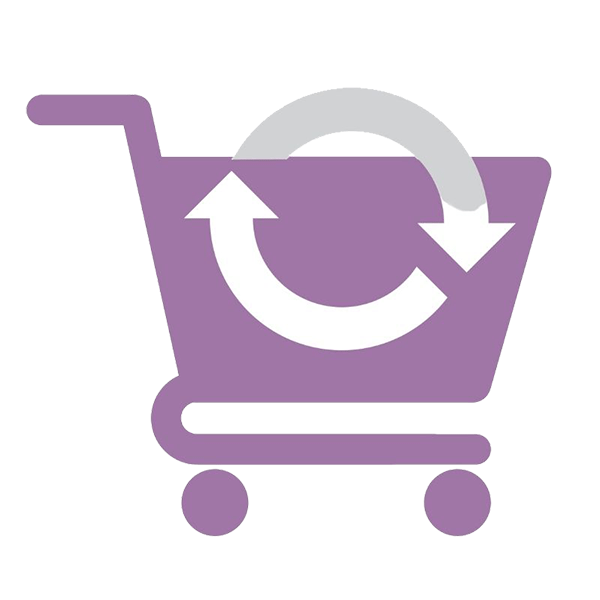
Procurement
- 50% of USC Hospitality food is purchased from sustainable sources
- >3 million plastic bottles prevented from entering the waste stream since the implementation of USC’s single-use plastic beverage bottle elimination policy effective July 2022

Education and Research
- Five Postdoctoral Fellows funded in 2023 through the Presidential Sustainability Solutions Fellowship
- 141 sustainability-focused undergraduate courses were offered in AY24 with over 6,700 undergraduates enrolled
- 25 research centers, programs or institutes are dedicated to sustainability research

LA Coliseum 2023 Football Season
- 90% waste diversion rate for seven football games
- 66.14 tons of game-day waste diverted from landfill (72.1 total tons generated during season)
- >1,200 tons of game-day waste diverted from landfill since 2015
- Three-time winner of Pac-12 Zero Waste Challenge